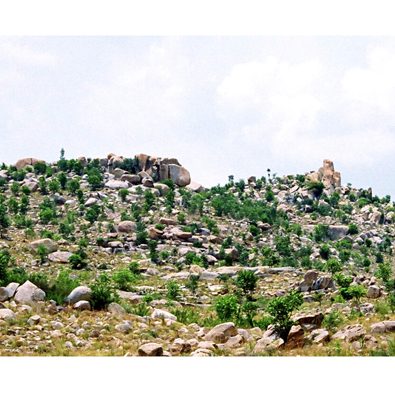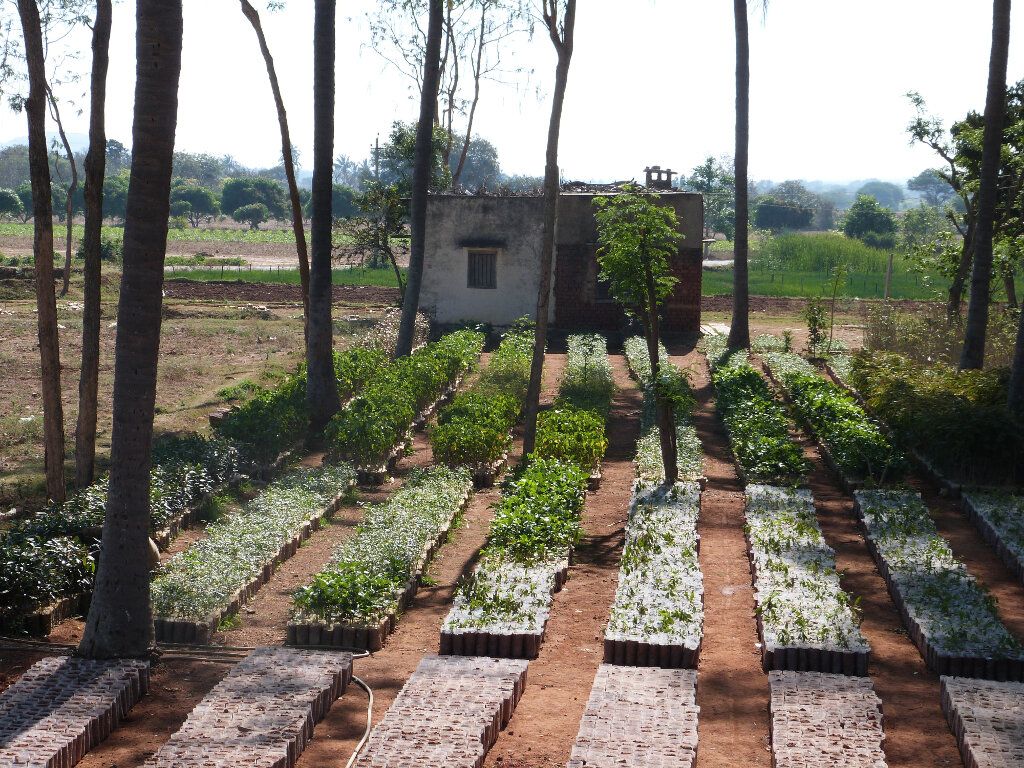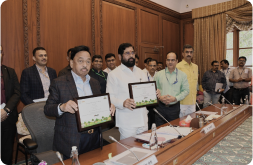

_1510035690.JPG)
_1510035690.JPG)
_1510035690.jpg)






Project Target
0% Remaining
25,000
Trees Planted out of 25,000 Trees

Project Location:
Plantation of 25,000 trees on the government lands of the upper catchments of Papagni River, covering parts of Kolar districts near the villages of Chirkorapalli, Yaguva Thummalapalli, Baltamari, M Kurrupalli, Sanakamvaripalli, Pathuraghadda, Malamotakapalli, Ammagaripete, Kottapete, Anepalli & Gundlapalya in Chintamani, Kolar district, Karnataka.
Project Aim
The forest provides the community with forest products like honey, mushrooms, and fruits like mangoes, tamarind, and cane which supports the livelihood of the people, as mentioned in the article by Indu K. Murthy et al. submitted to the World Forestry Congress, 2003. In a research article by Samson Foli et al., titled “To what extent does the presence of forests and trees contribute to food production in humid and dry forest landscapes?: a systematic review protocol”, the authors list several ways in which trees contribute to agriculture like food and fodder, water retention, nutrient cycling, pollination services, habitat for beneficial species, natural pest control, soil formation, water regulation, climate regulation, genetic biodiversity. One of the most important problems faced by the forest community is man-animal conflicts, to minimize which planting of trees to form animal-proof areas is highly recommended. These are meant to provide the animals with fodder, water and shelter to prevent them from coming into human habitations to fulfill their needs as mentioned by Kalyan Das, Conservator of Forests, Wildlife (Headquarters) West Bengal, Teri University. Thus local trees are of utmost importance in the life and livelihood of the local communities of a particular region and the tree plantation project in the area seeks to take care of it.
Bamboo (Dendrocalamus Strictus), Nayi Nerale (Syzygium Cumini), Sugar Apple (Annona Squqamosa), Neem (Azadirachta Indica), Golden Flower (Cassia Fistula), Black Siris (Albizzia Odoratissima), Indigo (Wrightia Tinctorial), Kassod (Cassia Siamea), Karanj (Pongemia Pinnata), Jam (Acacia Acuminata) Nerale(Syzygium Cumini), Hunse(Shorea Robusta), Seemathangadi(Alstonia Scholaris), Honge(Millettia Pinnata), Maddi(Terminalia Arjuna), Seege (Saraca Asoca), Neem(Azadhirachta Indica), Atti(Ficus Racemosa), Bage(Albizia Lebbeck), Kamara(Hardwickia Binata), Sitaphal(Annona Reticulata), Tapasi (Saraca Asoca) And Palavareni(Shorea Robusta)
The community residing in the nearby area depends on forests heavily for their personal and commercial needs. The local trees in the nearby areas adapt to the local conditions easily without requiring excessive maintenance. They provide forest products, recharge the groundwater table, add nutrients to the soil to improve the agricultural produce, provide fodder for the cattle and regulate the imbalance in the environment like absorbing carbon and releasing oxygen. Hence the trees influence the overall environment for rural communities by providing them with food, and livelihood opportunities and protecting them against natural calamities and environmental changes. They also provide shelter and food to the local animals thereby conserving the local biodiversity.
Social Impact of Growing Trees
Community Engagement
Tree planting initiatives often involve local communities, which can lead to greater community cohesion.
Ecological Education
Provides opportunities for community members, especially children, about the importance of environmental sustainability.
Urban Beautification
Trees contribute to the aesthetic enhancement of urban areas, making cities more pleasant and liveable.
Climate Resilience
By improving green cover, tree planting helps make communities more resilient against climate impacts like heatwaves.
Employment Creation
Planting trees creates employment for local community members like planting and maintenance, administrative roles, and more long-term jobs in management.
Wildlife Habitat
Trees provide critical habitats for various species of wildlife. Enhancing tree cover helps preserve biodiversity, which can be an ecological boon for local communities
Copyrights @ 2025 All rights reserved by Pangea EcoNetAssets Pvt Ltd.